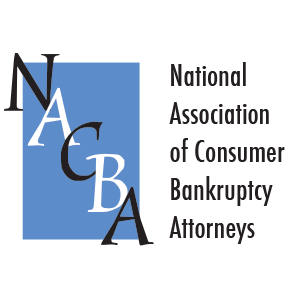If you take affirmative steps to rebuild your credit, your credit score will improve even though a reported bankruptcy, foreclosure or late payments remain on your credit report. Remember, a credit report is simply reporting history – it’s like a history book about you!
You must take some steps to rebuilt your credit. It will not simply get better unless you make an effort to rebuild it. The finance companies and banks get higher interest and make more profit as long as your score is low because you have to pay a higher interest rate.
You must give the credit reporting agencies, Trans Union, Equifax, Experian, etc., new, good information to place on your credit report so the new, better information, is there to judge your creditworthiness by. If the bad credit items simply fall off of your credit report and you do not replace those items with new information, you will simply have “NO CREDIT,” which is as bad or worse than bad credit. If you do not replace the information on your credit report, your credit score will remain low even though some of the bad credit blemishes on your credit report have fallen off after seven to ten years.
Get rid of your debt. Take a look at your overall financial picture. Can you pay your expenses going forward? If you cannot and you continue to make late payments to your creditors, your credit score will remain low or even drop. Sometimes getting rid of all of your debt by declaring bankruptcy is a wise first step because you will have obtained a fresh financial start and will be virtually “debt free” after your bankruptcy case. Removing your debt burden may make it easier to make timely payments on those living expenses you must pay each month.
As stated above, replace your credit information. The credit reporting bureaus give more weight to the most recent information. If your recent credit information is poor, late payments, foreclosure, etc., then your credit score will remain low. But as your new, better, credit activity begins to be reported as you reestablish your credit, mortgage paid on time, credit cards paid on time, etc., your credit score will start to improve despite your earlier poor credit history.
Catch 22 – you need credit to obtain credit, but you don’t need a lot of credit. In other words, even small lines of credit can start you on your path to rebuilding your credit and improving your credit score. You do not need large limit lines of credit to improve your credit score. Using even small amounts of credit and paying the creditors back right on time can result in significant improvements in your credit score. Sometimes this starts with a “secured” credit card.
Look at your credit report, really study it. It has been reported that almost half of the credit card companies incorrectly list your credit limits. This incorrect reporting can lower your credit score. A huge number of people have readily apparent errors on their credit reports. Fixing the errors is not difficult, but can be a bit tedious and time consuming, but significant errors should be corrected to boost your credit score.
As your credit score increases, you will become entitled to lower interest rates. Banks are not in a hurry to see your credit score increase as it means that they will have to take less profit from you on any loans they make to you. So, you must be proactive and make the effort to improve your credit score. Do not try to trick the credit bureaus with the many “credit repair” scams that exist. Those scams are seeking to take YOUR money. Some of these scams will temporarily remove bad credit information from your credit report. However, if the information is accurate, the bad credit information will return to your credit report eventually. Your credit report is a history book, no one can change history and remove accurate but negative information from your credit report – it’s illegal to do that.
Tags:







